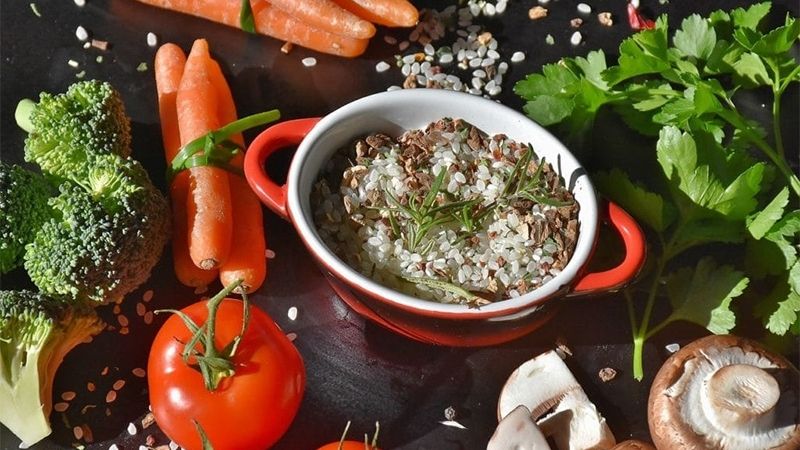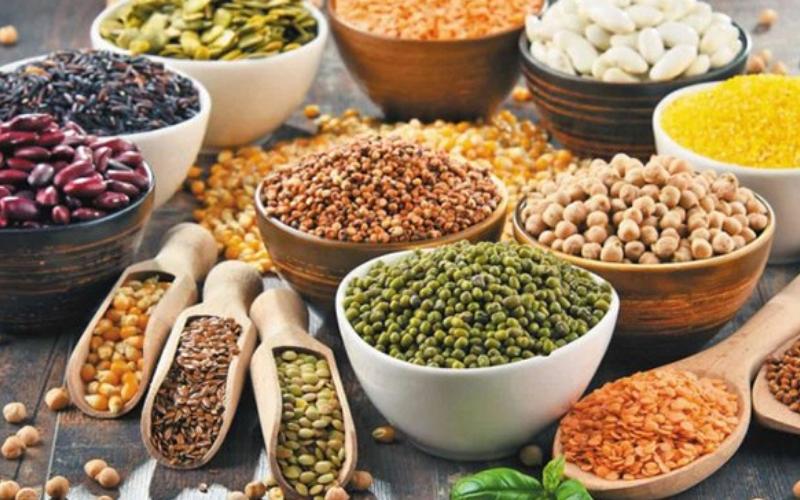The macrobiotic diet is a way of eating that is gaining traction among doctors and nutritionists. But what is it, and what are its benefits? Let’s find out together in this article.
1 What is the Macrobiotic Diet?
The term “macrobiotic” comes from the Greek words “macro,” meaning large or long, and “bios,” meaning life. So, the macrobiotic diet is a way of eating that promotes longevity and a healthy life.
At its core, the macrobiotic diet is a restrictive diet that eliminates meat and focuses on seafood, eggs, dairy, and a fixed vegan diet. The principle of this diet is to reduce animal-based foods and replace them with seasonally grown produce, while also reducing overall food intake.
 What is the Macrobiotic Diet?
What is the Macrobiotic Diet?
2 Benefits of the Macrobiotic Diet
When followed correctly, the macrobiotic diet offers numerous benefits without contradicting scientific principles.
Improves Digestive Health
The macrobiotic diet is easy on the digestive system as it primarily consists of plant-based foods with minimal chemical additives. Over time, this can help restore digestive health and improve overall digestion.
 The Macrobiotic Diet Improves Digestive Health
The Macrobiotic Diet Improves Digestive Health
Boosts Energy and Endurance
Chewing food thoroughly, a key aspect of the macrobiotic diet, optimizes nutrient absorption and increases energy levels. Additionally, the natural, minimally processed foods in this diet contribute to higher energy and endurance, as well as increased vitality.
Strengthens the Immune System
Consuming nearly whole grains as part of the macrobiotic diet helps maintain the blood’s pH level at a neutral 7.4. This reduces issues related to joints, cardiovascular health, and digestive damage, while also minimizing blood sugar and acid levels.
Improves Sleep Quality
The macrobiotic diet generally promotes better and deeper sleep. Moreover, the act of thorough chewing exercises the facial muscles, potentially slowing down the aging process and promoting a more youthful appearance.
 The Macrobiotic Diet Improves Sleep Quality
The Macrobiotic Diet Improves Sleep Quality
Enhances Nutrient Absorption
The foods included in the macrobiotic diet aid in proper digestion and prevent metabolic disorders. As a result, nutrient absorption is improved and made more efficient.
Improves Cognition and Memory
The clean eating approach of the macrobiotic diet leads to cleaner blood, which in turn promotes healthier brain cells. This helps reduce depression and stress, improving mood, cognition, and mental clarity, while also increasing physical agility.
Aids in Weight Loss and Maintenance
The macrobiotic diet is inherently designed to facilitate effective weight loss and subsequently maintain a stable body weight.
 The Macrobiotic Diet Aids in Weight Loss
The Macrobiotic Diet Aids in Weight Loss
3 Who Can Follow the Macrobiotic Diet?
Anyone from the elderly to children can benefit from the macrobiotic diet as it is a healthy and beneficial way of eating when followed correctly.
 The Macrobiotic Diet is Suitable for All Ages
The Macrobiotic Diet is Suitable for All Ages
Notably, doctors often recommend this diet for individuals with cardiovascular and obesity issues. When adhered to properly, the macrobiotic diet can significantly alleviate symptoms associated with these conditions over time.
4 Food Recommendations for the Macrobiotic Diet
Foods to Include in the Macrobiotic Diet
Whole grains or products made from whole grains such as red or brown rice, and Japanese soba noodles should comprise 40-60% of your daily food intake when following this diet.
 Whole Grains
Whole Grains
Vegetables: Aim for 20-30% of your daily food intake to come from vegetables. When following the macrobiotic diet, focus on increasing your consumption of leafy greens, cabbage, broccoli, and parsley.
 Green Vegetables
Green Vegetables
Beans and bean products: Include beans, lentils, chickpeas, and other bean products, which should make up 5-10% of your daily food intake.
Vegetable oils and natural seasonings: Incorporate vegetable oils, sesame seeds, and seaweed into your meals to enhance flavor and make them more palatable.
Additionally, you can consume certain foods two to three times a week, such as nuts, hard fruits, seeds, natural sweeteners, and non-stimulating beverages.
 Fruits
Fruits
Foods to Avoid in the Macrobiotic Diet
To achieve optimal health benefits from the macrobiotic diet, avoid the following foods:
Refrain from consuming beef, pork, chicken, duck, and processed meats as they can significantly impact the effectiveness of the diet and pose health risks.
 Meats and Poultry
Meats and Poultry
Avoid using spicy seasonings.
Do not consume alcoholic or preserved drinks such as beer, wine, or carbonated drinks.
 Carbonated Drinks
Carbonated Drinks
We hope that this article has provided you with a better understanding of the macrobiotic diet and its benefits. Embrace a smarter and healthier lifestyle by choosing a dietary approach that suits your needs and avoids adverse effects.



































